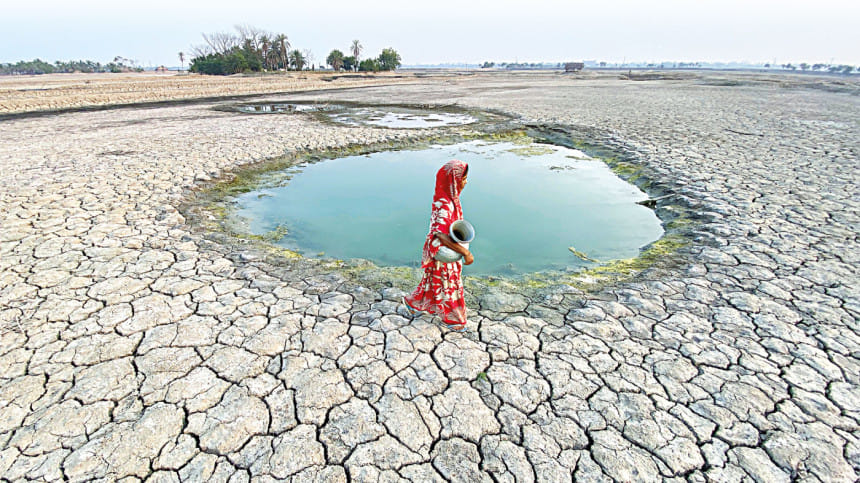Gendered effects of environmental crises

Unfortunately, the gendered effects of climate disasters are ignored by national policies in Bangladesh. This happens although women are more likely to be victims of trafficking, violence, and displacement. According to the UN Women Rapid Gender Analysis following Cyclone Amphan, Gender Based Violence (GBV) increased by 65% in the affected areas after Cyclone Amphan. Another report by Action Aid in 2007 found that 71% of respondents said they experienced more abuse during natural disasters such as flood. Women are disproportionately endangered and silenced by overcrowded, hazardous shelters and poor menstrual hygiene.
Climate change intensifies gender-based human rights violations in Bangladesh's coastal districts. Cyclones, floods, and storm surges threaten women's rights to life, liberty, and security, while displacement increases their exposure to violence and insecurity. The right to an adequate standard of living is compromised by the loss of homes and livelihoods. Reproductive health dwindles due to saline water exposure and poor sanitation impedes menstrual hygiene. Climate impacts also lead to an increased school dropouts, threatening the right to education, while insecure housing and public spaces endanger privacy and social security. Moreover. economic desperation increases child marriage, breaching the right to free consent. Thus, an array of constitutional as well as fundamental human rights get violated.
Disaster-prone areas must have access to gender-responsive healthcare, including trained professionals, reproductive and mental health assistance, and menstrual hygiene. Additionally, laws should ensure that women with disabilities, widows, and single mothers are prioritised when it comes to disaster assistance and social safety nets.
Bangladesh lacks specific protections for women and girls, despite the obvious connections between GBV and climate disasters. Although it recognises the concerns of women and children, the 2009 Climate Change Strategy does not include sufficient gender-responsive strategies. Again, although the 2010 Climate Change Trust Act allocates funds for adaptation of the affected communities and mitigation of harm, it has not adopted a gendered lens as such.
I argue that there is an urgent need for a legal framework that is gender responsive. To acknowledge GBV as a recurring concern in climate crises, current disaster management laws and climate policies need to be modified. In addition to guaranteeing victim support services and expedited prosecutions, legislation should especially focus on all kinds of abuse, harassment, trafficking, and forced marriage in displacement contexts. To strengthen legal protection and responsibility, important laws such as the Nari O Shishu Nirjatan Daman Ain 2000 and the Domestic Violence (Prevention and Protection) Act 2010 should be amended to incorporate climate-induced displacement as an aggravating element.
National legislation must guarantee state accountability for protecting women in climate-vulnerable areas to fulfill our international commitments. Disaster-prone areas must have access to gender-responsive healthcare, including trained professionals, reproductive and mental health assistance, and menstrual hygiene. Additionally, laws should ensure that women with disabilities, widows, and single mothers are prioritised when it comes to disaster assistance and social safety nets. Lastly, it is necessary to enforce gender-sensitive infrastructure, such as safe water access, women-only cyclone shelters, and legislative protections for girls' education in times of crisis. Climate change will continue to exacerbate gender inequality drastically in Bangladesh unless laws are changed.
Era Sharmila Khan
Apprentice lawyer at the Dhaka Judge Court.

 For all latest news, follow The Daily Star's Google News channel.
For all latest news, follow The Daily Star's Google News channel. 



Comments